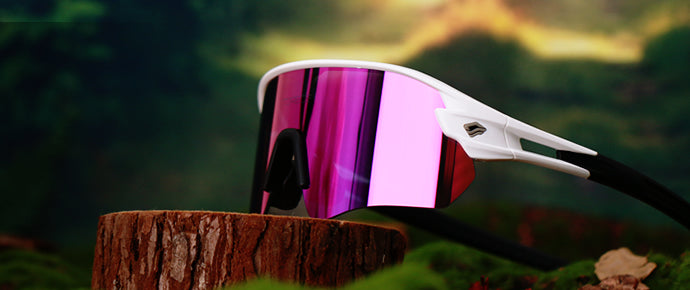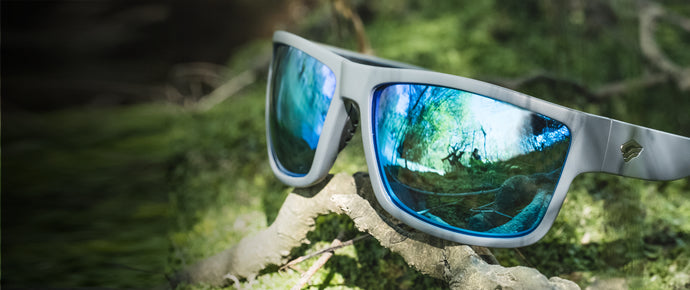
The eternal problem of everyone who is going to buy glasses is the need to choose the lens material – plastic or glass (polymer or mineral). After all, both options have their advantages and disadvantages, the importance of which is not so easy to assess if you are not completely "in the subject", and you don't really want to rely on rumors.
For example, many people believe that if it is possible to choose lenses in glasses - glass or plastic, it is better to lean towards the first option, since the second one seems to be very easily scratched. If this is true, wouldn't it be easier to make them all glass? And why then are plastic eyeglass lenses so popular? Others believe that glass glasses have long outlived themselves because they are unsafe – they easily break into fragments, which are easy to injure.
Who is right after all? Let's try to figure out which glasses are better – plastic or glass.
Disadvantages and advantages of plastic lenses
The main disadvantage of plastic, which is emphasized by those who prefer optical glass, is the softer structure of polymer lenses, which is immediately associated with the ease of scratching and the need for more careful care.
In fact, this problem is present only in outdated and cheap models. Plastic glasses produced by modern serious brands are equipped with reinforcing coatings, and sometimes with a modified structure, which makes them no less (and sometimes more) scratch-resistant than glass ones. Torege uses only the safest and highest quality materials.
In addition, there are also the following obvious advantages of plastic lenses:
- Lightweight (compared to glass) makes the operation process more comfortable.
- Increased durability and safety are the most attractive advantages of plastic glasses. This refers to the resistance to breaking and the minimum possible chance of the formation of fragments that can injure the eyes.
- A wide selection of frames. The possibility of attaching lenses with a fishing line or screws makes any options of semi-rightful/safe models available.
- The simplicity of coloring in any shade is another clear advantage of plastic lenses, which makes it possible for manufacturers to make lenses for absolutely any tastes and needs of the end-user. In particular, in the case of plastic lenses, the creation of gradient and polarized glasses is greatly simplified.

Advantages of glass lenses and their disadvantages
So, what are the advantages of glass lenses, besides the fact that they have proven themselves well since they have been used for a long time?
High values of the maximum achievable index (refractive index) make the optical properties of mineral lenses more attractive compared to the capabilities of polymer lenses. Due to this property, the thickness of the glass (with the same diopters) can be half the size of plastic.
- Resistance to mechanical damage (scratching) is the main advantage of glass lenses over plastic ones. This does not mean that the appearance of scratches on the glass is completely impossible – they just appear less often even with a careless attitude to glasses, which is unacceptable in the case of plastic.
- Resistance to high temperatures (within reason) and exposure to chemicals make it possible to use glasses with mineral lenses in unusual conditions, for example, for those who work as a cook, welder, steelworker, laboratory chemist, etc.
Among the obvious disadvantages of mineral lenses, they clearly stand out:
- Low impact resistance - makes lenses made of glass, or rather possible fragments when they are broken, unsafe. Therefore, they are not recommended for athletes, children, and those who simply lead an active lifestyle like skateboarding/roller skating and any other activity during which frequent falls are possible.
- The difficulty of using safety glasses. As a rule, for trouble-free and safe fixing of glass lenses, full-fledged metal/ plastic frames are needed, which is not always suitable for those who want to look trendy and modern.
And what do we have at the output? Approximately the same situation as it was at the beginning of the article – it is still impossible to say unequivocally which glasses are better - plastic or glass. But that wasn't the purpose of this article. The meaning of the above information was so that you would learn to give preference to the advantages of one or another variant of glasses, taking into account your needs and the conditions in which they will be used. We hope that with our help you have sorted this out.
But for sports, glasses with plastic lenses are definitely needed, since there is a high probability that the glass glasses will break, and this is not safe for the eyes. The lenses of our glasses are developed only from high-quality materials that completely protect against ultraviolet light.
If you are a lover of an active lifestyle, then sports glasses with plastic lenses are just for you. All Torege sunglasses with plastic lenses are impact-resistant, hydrophobic, with different lens colors that do not fogg-up and most importantly provide 100% UV protection.































